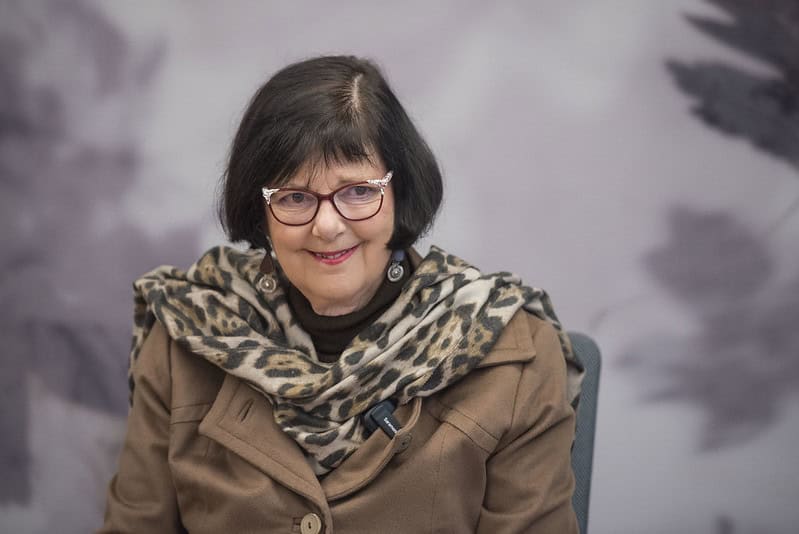She’s the 13th occupant of the hot seat in what’s probably one of the most complex and burdensome portfolios in government.

Barbara Creecy has served in government since the dawn of democracy in South Africa.
That’s 30 years plus change, and presently she’s Minister of Transport, a portfolio that some may say is a hand dealt that’s guaranteed to fold before the flop.
She’s the 13th occupant of the hot seat in what’s probably one of the most complex and burdensome portfolios in government.
“It’s hopefully a lucky number for me,” Creecy said.
The Minister is armed with a sardonic, dry wit that’s as enjoyable as her warmth that nurtures familiarity. She’s the kind of person, it seems, that holds a room not by force, but by intellect paired with affability. And there are no airs and graces. What you see is what you get.
Creecy said her almost lifelong marriage to politics has been as demanding as it has been fulfilling.
“It’s been fun, it’s been difficult, I’ve learned an enormous amount,” she said. “I have had a very interesting life.”
‘I’ve had a very interesting life’
Creecy is an alumnus of Johannesburg’s Roedean School and has been a long-standing member of the ANC’s National Executive and Working Committees. Her political career dates back to 1979, when she joined the ANC, then banned, while a student at the University of the Witwatersrand (Wits University).
There she graduated with an Honours in political science before completing a Master’s in public policy and management at the University of London.
Creecy was a founding member of the United Democratic Front in 1983, and operated within the ANC underground, spending time in exile in 1988 in the then Soviet Union.
She began her career in the post-1994 government in the Gauteng Provincial Legislature in 1994, where she was first elected as a Member of the Provincial Legislature in Gauteng.
She spent ten years there, helping to shape what later became South Africa’s national oversight framework.
“We developed a concept of parliamentary oversight that was different from the forms that exist elsewhere in the world,” she said. “It included quarterly performance reviews of departments and entities, not just the budget.”
A career of achievement
During that period, she chaired both the Social Development and Education Committees.
In 2004, she joined Premier Mbhazima Shilowa’s provincial Cabinet as MEC for Sports, Arts and Culture, a role she held during the lead-up to the 2010 FIFA World Cup.
In 2009, she moved to the education portfolio, focusing on performance improvements in township schools.
“We worked on turning around underperforming schools in Soweto and other communities,” she said.
ALSO READ: Two South Africans, one laptop and a billion-rand travel company.
By 2014, she was appointed MEC for Finance in Gauteng.
Her team introduced the Gauteng Open Tender System and worked on initiatives to integrate township businesses into both public and private supply chains.
“We did a lot of work supporting Premier Makura on developing township enterprises,” she said.
In 2019, Creecy moved to national government, taking up the Environmental, Forestry, and Fisheries portfolio. There, she worked on the Climate Act and international climate financing agreements.
In 2024, she was appointed Minister of Transport. Here she oversees 16 entities and eight departmental branches.
It includes problem children like Transnet, Prasa, SAA, and other industries that would be a headache to most. Creecy isn’t fazed, but noted that a single term to get things done is not a long timeline.
“Five years is short. You must have an overarching vision so that you can move the system in a common direction,” she said.
A vision with six targets
Her vision is defined by six key targets: moving 250 million tons of freight onto Transnet’s rail network, achieving 30 gross crane moves per hour at ports, 600 million Prasa passenger journeys by 2030, 42 million annual passengers through ACSA airports, 1.2 million tonnes of air freight, and halving road fatalities by 2030.
Progress includes a 9-million-ton increase in Transnet freight, 48 000 more freight units through ports with cranes recommissioned, and 35 of 40 priority Prasa lines restored, enabling 77 million passenger journeys so far with a target of 116 million this year.
Road accidents dropped 9% and fatalities 11%, attributed to coordinated enforcement at hotspots.
Creecy said she does not intend to stay in public office beyond the current term.
“I think it will be time for me to retire,” she said. “But I enjoy this portfolio now. It is intellectually stimulating and fast-paced.”
Her daily routine is dominated by work, with time scheduled for exercise and healthy eating.
“I’m very health-conscious. Protein, vegetables, and a little fruit, definitely no carbs,” she said.
Spare time is often reading time, particularly policy-related material.
“I’ve been reading books on rail reform,” she said, citing The Pig That Flew and Switchpoints, which detail the Canadian rail turnaround. “They’re not entirely synonymous with our challenges, but they are useful case studies.”
The Minister has two children and is divorced. Her son is actively involved in nature conservation in Mpumalanga. She regrets nothing and is somewhat philosophical about the daily grind.
“I chose this work,” she said. “Nobody forced me. I believe I can make a difference.”
NOW READ: Husband and wife team rely on talent
Support Local Journalism
Add The Citizen as a Preferred Source on Google and follow us on Google News to see more of our trusted reporting in Google News and Top Stories.








